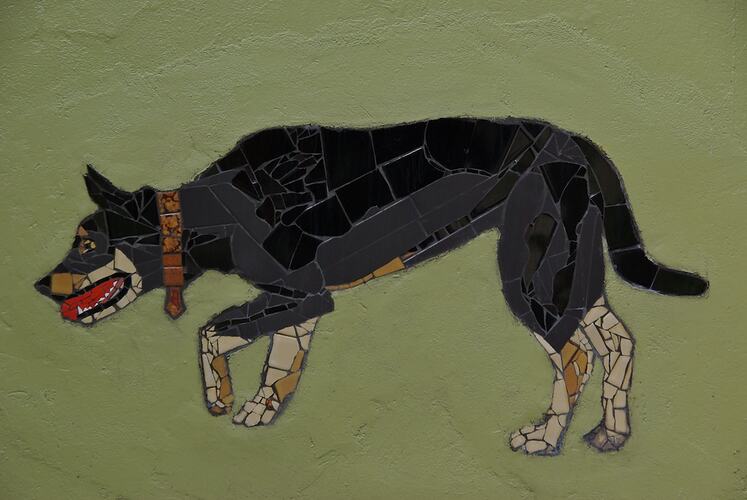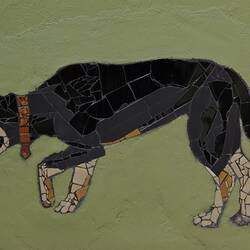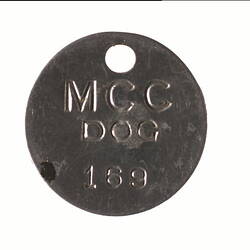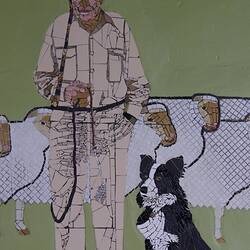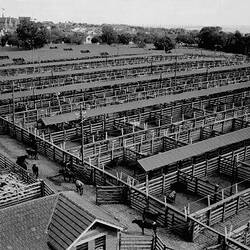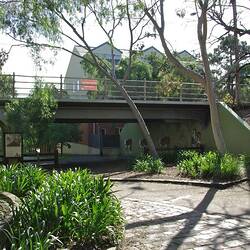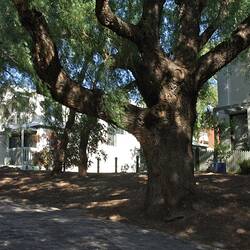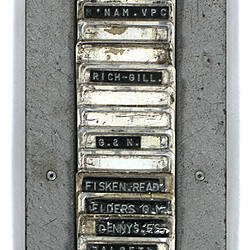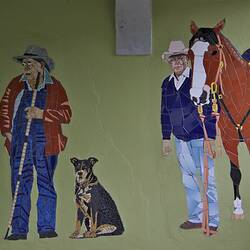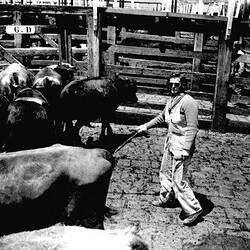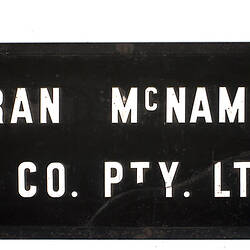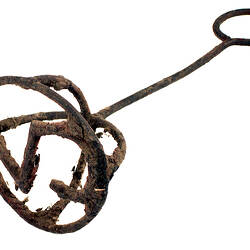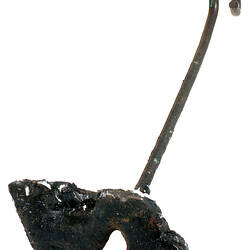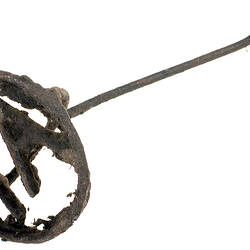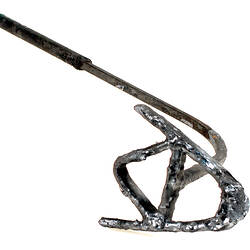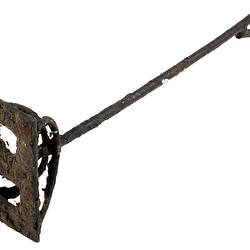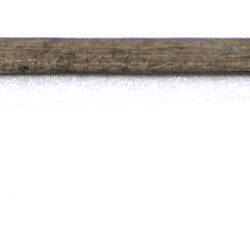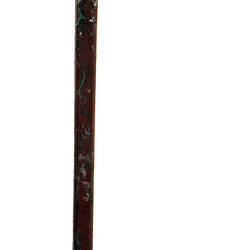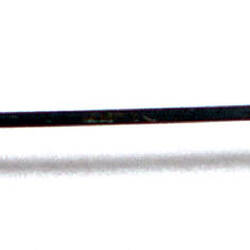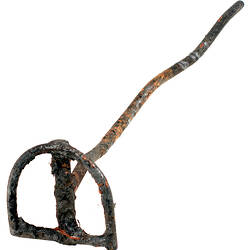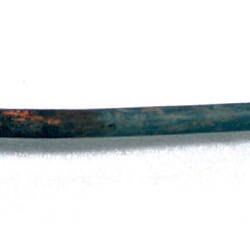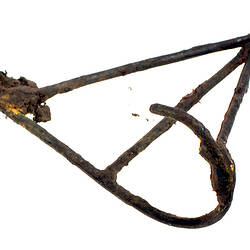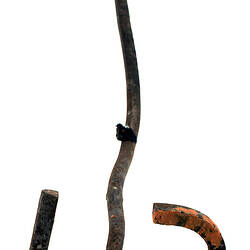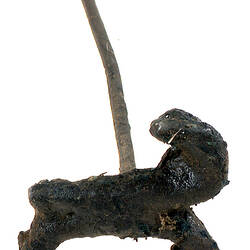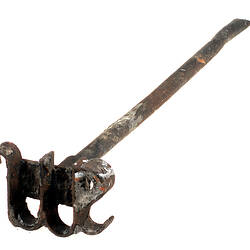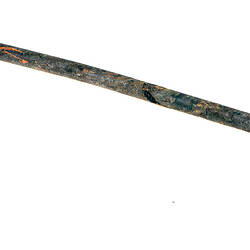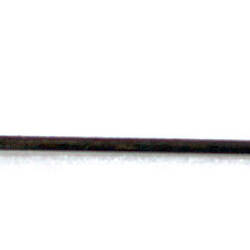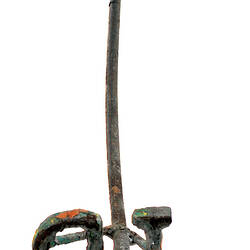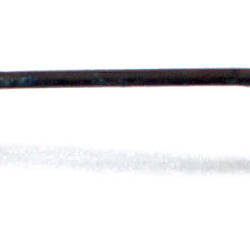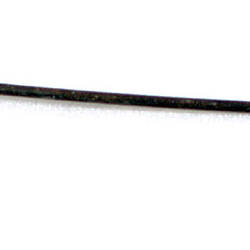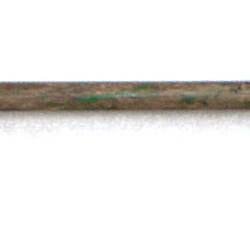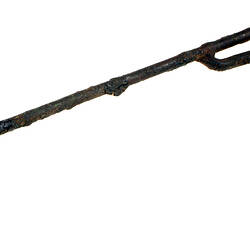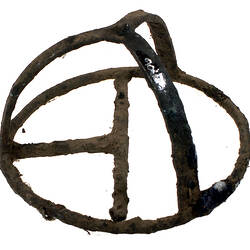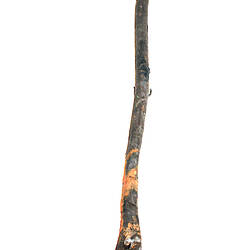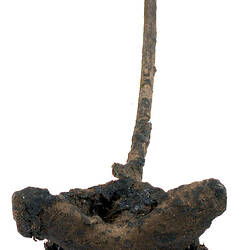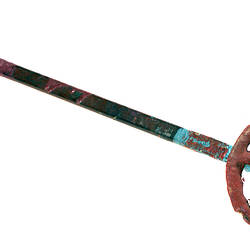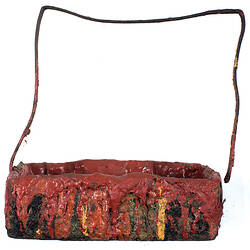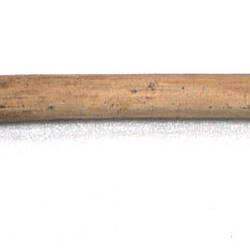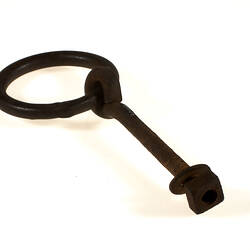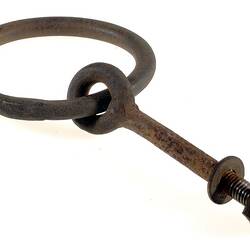Memories (selected) from Joe Raymer (1926-2009), Drover, Newmarket Saleyards.
July 1998, aged 72 years.
When I was 14 years old I started work for Tom Collins, a wholesale butcher in Highett Street, Richmond. My job then was to pen up the sheep for the 10 slaughtermen who worked for him. It was a 6am start, until all the sheep were penned.
Tuesday and Thursday were sheep market days. I would have to go to Newmarket by train, travelling in the guard's van with my dogs. Those days my job was to pick up the sheep that Tom had bought from the 18 agents that sold there at the time. When all the sheep were put together in the holding yards, one race would hold 3,000-4,000 sheep. The sale started at 8.10am and nearly always finished about 3pm. Once all the sheep were yarded up it was home by train again. Sometimes there would be no room in the guard's van and I would have to get into the first carriage with my dogs and they would get under the seat. Because the dogs had been working with me in the yards all day, they would be a bit on the smelly side, especially on a wet day. The carriage would fill up with people who didn't know the dogs were under the seat - there were often some strange looks going around!
Anyway, home to Richmond, have tea and into bed for a nap. In those days the stock would be walked by road to Richmond at night-time after midnight. I would have to get up at 10.30pm, go to the stables, put the horse in the cart, get the dogs in, and Bill (my boss) would get in the cart and away we would go. It was about an hour's drive to Newmarket, not too many traffic lights, and (Meggsie) the cart horse could trot along pretty quick. With the dogs yapping most of the way, the time went quick. As Newmarket clock got around to 12 midnight, the council counters would arrive to unlock the gates and count the sheep out of the yards. It took about seven to eight hours to walk the sheep through the city via Queensberry Street to Richmond. On the way we would always get a fresh pie from the bakehouse and, if we met up with the milkie, we always got a fresh bottle of milk. Wednesday was cattle day and in the night I would ride to Newmarket to walk the cattle that were bought at the sale to Richmond. There was [sic] always two of us - one would ride the tail and one on the lead. With me being the youngest, I used to ride the lead; I had a good grey stock pony (Minni).
Sometimes it was like a Western when the cattle were a bit wild and they got a bit of speed up, galloping in the lead cracking the whip to steady the mob of some 300-400 bullocks, it was a great way to get the adrenalin pumping. If the bullocks travelled all right - no breakaways - the trip to Richmond was about two-and-a-half hours. With the war still going on in 1943-44, night droving was all changed as the city was browned out by night and we were allowed to leave Newmarket Saleyards in daylight hours, droving the sheep when the sales finished at 4pm onwards and, for the cattle, daybreak. This meant we were droving at the peak hour times, mixing with the public and the motor traffic, which caused a lot of delays at times.
(After the war) in 1948-49, I started back at Newmarket, my work involved taking delivery of livestock at the Newmarket trucking yards and walking the stock to the Saleyards; there were some 50 drovers working there. I would start at 10pm on Monday nights and work until all the stock were drafted and penned up for the sale. This would finish about 10am the following day. Then I would start putting together stock bought by butchers to go by transport to the Richmond abattoirs. The council would put sand on the stock route to stop the stock slipping and sliding on the road. Often we would have stock trying to get in the doorway of the Pastoral Hotel. After the sales there would be many big mobs of sheep leaving the yards through the Back Gate.
In 1960 I went to work for livestock transporters that had the contract to carry all Smorgans' stock to their meatworks in Brooklyn. Smorgons would buy thousands of sheep and lambs each market day and hundreds of cattle. In 1963, Smorgons bought 24,000 sheep at the Thursday market and wanted them all at the Brooklyn works the next day. This was too many to cart in such a short time, so we obtained permission from the council to move some of the sheep out by road. This was my job, so I engaged another eight drovers and we moved 16,000 sheep out in one mob. This was the last mob to go by road from the Newmarket Saleyards.
Newmarket was a great place to work; boys became men in a very short time. Absenteeism was never heard of while I worked there. There has never been another place like it, lots of fun and great people to work with. Most of the characters that worked there had nicknames, like Barbwire, Scooterboots, Steamboat, Whiplash, Buckboard, Hambone and myself - Big Joe, Grumpy or the Big Karumba.
References:
Government of Victoria, Office of Major Projects. 1998, 'Joe's Story', Agenda 21, July, no. 17, pp 8-9.
More Information
-
Keywords
Cultures and histories : Melbourne and Victoria, Childhood, city & town life, country life, Working Lives
-
Authors
-
Article types
